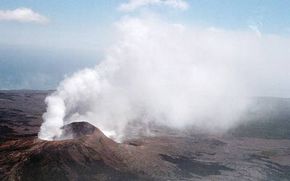This is a question that has certainly crossed the minds of children everywhere, and admittedly the minds of adults as well. To answer this question, first we need to look at how and why we expel gas in the first place. Humans rid themselves of excess gas in two ways -- belching or flatulence.
Basically, what happens when you belch or burp is that air is being forced from your stomach up through your throat and out of your mouth. Sometimes this happens so quickly, there's hardly any time to politely cover your mouth. An apologetic "Excuse me" must suffice. Most often, eating or drinking something too quickly causes these unwanted bursts. In addition to your food or beverage, you take in extra, unnecessary air with each bite or gulp. Other culprits include carbonated beverages and drinking through a straw.
Advertisement
Flatulence is a little different. In this case, the gas is being voided from either your stomach or your intestines and it's leaving your body by way of the opposite end of your digestive tract. Most of us think that flatus (gas) is caused by specific foods. This is only part of the story. It's true that foods such as beans or dairy products can cause your body to produce extra gas. However, your body actually produces a certain amount of gas on a daily basis anyway -- no matter if you have beans for lunch or forget to take a lactose pill before having a milkshake. Usually, the walls of your intestines absorb this gas. When there's too much gas for your bowels to absorb, your body finds another way to relieve the unwanted pressure.
So, what happens when you have too much gas for your intestines to absorb and you aren't able to burp or break wind? It's not a pretty picture. Actually, you would be in a lot of pain. Initially you would feel bloated. Think about the way you feel after eating too much food, or drinking too much water all at once. When you eat an excessive amount of food, things usually settle down after a bit. Unfortunately, that relief would not be forthcoming. Your stomach and intestines would most likely fill up with gas, much like a balloon with air. While you wouldn't explode exactly, that's pretty much what a good portion of your insides would do. The walls of your guts would stretch to their capacity and would eventually perforate or rupture altogether.
Advertisement
